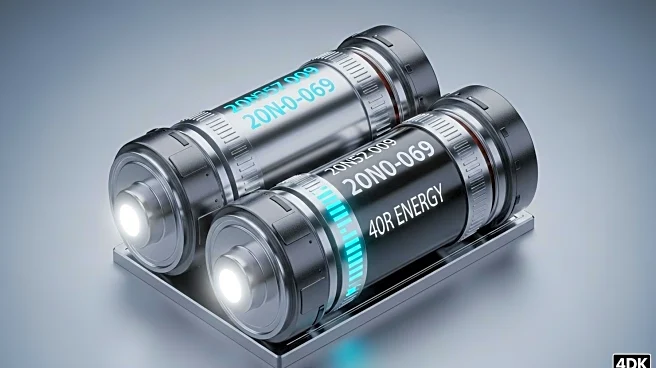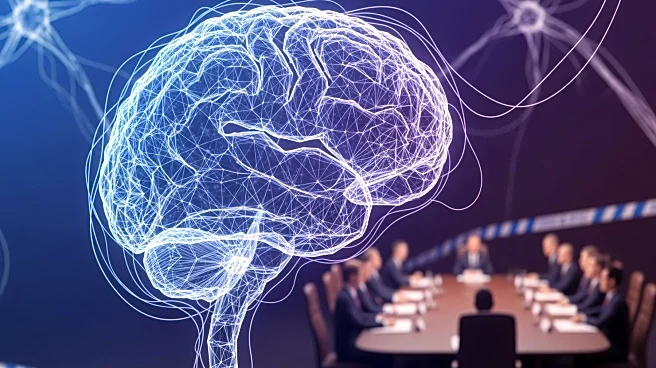What's Happening?
Researchers at the Massachusetts Institute of Technology (MIT) have developed a new mathematical model that could significantly enhance the performance of lithium-ion batteries. This model, based on coupled ion-electron transfer theory, offers a more accurate prediction of electrochemical reactions than the traditional Butler-Volmer equation. The research involved analyzing over 50 combinations of electrolytes and electrodes to create a comprehensive database, which was then used to refine the model. This advancement allows battery companies to improve charging speeds and reduce degradation without requiring a complete overhaul of existing manufacturing processes.
Why It's Important?
The development of this model is crucial for industries reliant on battery technology, such as consumer electronics and electric vehicles. Faster charging and longer-lasting batteries can lead to more efficient devices and vehicles, potentially reducing costs and increasing consumer satisfaction. The ability to implement these improvements immediately, without significant changes to current production methods, means that companies can quickly adapt and enhance their products. This could lead to a competitive advantage in the market, driving innovation and potentially leading to broader adoption of electric vehicles and renewable energy solutions.
What's Next?
Battery manufacturers are expected to begin integrating this model into their design processes, potentially leading to incremental improvements in battery performance. The scientific community may conduct further studies to validate and refine the model, ensuring its reliability and effectiveness. As companies adopt this technology, consumers could see faster-charging and longer-lasting devices in the near future, impacting everything from smartphones to electric cars.










